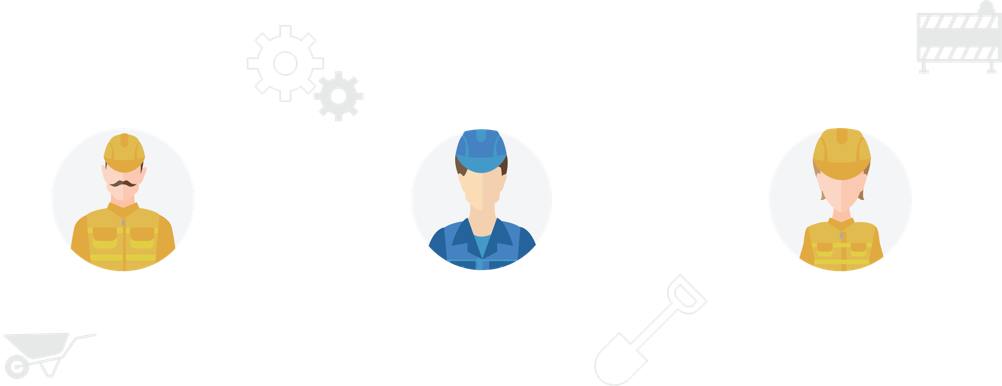
Instrumentation & Control Technicians install, repair, maintain, and calibrate industrial measuring and controlling instrumentation, helping to ensure that all machines in a plant are safe and running correctly. They may regulate equipment water flow or check air quality in a mine. Since the safe operation of the plant relies on these instruments, technicians must constantly monitor them.
Job Related Skills, Interests and Values
- Consulting manuals; reading and interpreting circuit diagrams, blueprints, and schematics
- Using testing devices to inspect/test instrument and system operation to diagnose faults
- Writing maintenance reports
- Repairing and adjusting system components, or removing and replacing defective parts
- Calibrating components and instruments; performing scheduled preventive maintenance work
- Installing control and measurement instruments on existing or new plant equipment
- Observing safety in accordance with government and company standards
What Preparation and Training Do You Need?
- Grade 10 legal minimum, but employers often require secondary school diploma
- While not mandatory, completion of an 8,000-hour apprenticeship, including a combination of on-the-job and in-school training, is recommended
- Exam to obtain Certificate of Qualification
What's Your Future as a Instrumentation & Control Technician (447A)?
- May be called in emergencies
- Indoor work, mainly on plant floor and often in cramped conditions
- Prolonged periods of standing; exposure to high noise, fumes, and heat levels
- Employers include machinery wholesalers, industrial instrument or chemical manufacturers, steel producers, power companies, and mining/natural gas companies
Wage Rate
Apprentice wage increases with skill and experience. Fully qualified workers earn an average of $39.00-$58.80 per hour.
Self-Rating
Instrumentation and Control Technician (447A)
| Ask Yourself: | Yes | No |
|---|---|---|
| Can you read and interpret blueprints and diagrams? | ||
| Do you enjoy problem-solving and coming up with a solution? | ||
| Do you have good communicating, verbal, and writing skills? | ||
| Are you able to follow Health & Safety guidelines? | ||
| Do you thrive in busy situations? | ||
| Do you have an eye for details? | ||
| Are you reliable, a self-starter and able to work with minimal supervision? Are you a team player? |
If you checked YES to the majority of these questions, a career as an Instrumentation and Control Technician (447A) may be for you!
You might want to look at these similar trades as well;
- Industrial Mechanic Millwright
- Electrical Instrument Mechanic
- Electronics Technician
Electronics Service Technicians specialize in repairing electronic equipment such as radio and television receivers, stereo components, video cameras, video and audio tape recorders, two-way radio communication systems, and bio-medical systems.
Packaging Machine Mechanics set up packaging lines to accommodate various products, package dimensions, and production volumes. They may also repair, adjust, or maintain this equipment.
Machine-Tool Builders & Integrators build, assemble, and integrate components and systems on stand-alone and machine-tools on multi-station automated machine tool systems. These automated machine-tool systems are used in all sectors of manufacturing, including assembly, processing, and fabricating systems.
Power Process Operators for refinery, chemical and liquid processes monitor valves, pumps, and other equipment to make sure the factory is efficient and productive.
Relay & Instrumentation Technicians repair, overhaul, and calibrate vital signal control relays (VSCR) within the transit environment.
Industrial Mechanic Millwrights install, maintain, repair, and remove stationary industrial machinery, mechanical equipment, and automated and robotic systems. They most often carry this work out in industrial plants and factories.